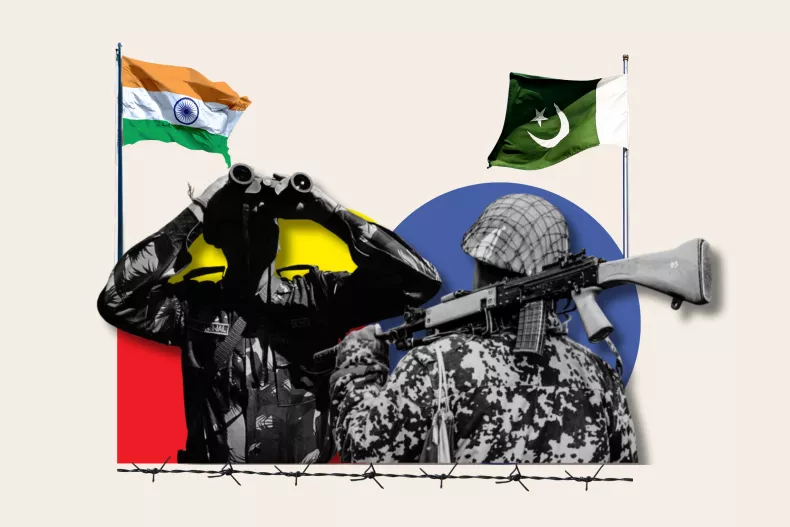War is not just fought on borders; it is fought in the minds of people. The recent escalation between India and Pakistan was more than a military confrontation it was a psychological earthquake that forced ordinary citizens to confront the fragility of peace. This article explores three dimensions of the conflict:
- The Personal Toll of War: How conflict strips away meaning from individual lives.
- Pakistan’s Paradox: Why war revitalizes the nation, even as it devastates it.
- The Danger of Dehumanization: How toxic narratives fuel endless hostility.
The Personal Toll of War: When Everything Becomes Meaningless
The Sudden Collapse of Normalcy
When Indian jets struck near Pakistan’s Nur Khan Airbase, the abstract concept of “war” became terrifyingly real. The fear wasn’t just about national security it was about survival.
- “What happens to my family?” The dread of invasion makes even basic security uncertain.
- “Will banks work? Will ATMs freeze?” Modern life depends on systems that war disrupts.
- Existential Nihilism Albert Camus argued that violence often stems from meaninglessness. War turns life’s achievements to dust, leaving only raw survival instincts.
The Illusion of Control
Before the conflict, personal success education, career, social status felt like progress. But war exposes the truth: no individual is safe when nations collide.
“War doesn’t just kill people; it kills the idea that life has inherent meaning.”

Pakistan’s Paradox: War as Oxygen
Why Conflict Strengthens Pakistan
Many assume war weakens Pakistan, but history shows the opposite:
- National Unity in Crisis: After India’s strikes, Pakistanis rallied behind their military in unprecedented ways. Stadiums chanted for the Army Chief something unthinkable weeks earlier.
- Hegel’s Storm Analogy: “Just as storms cleanse stagnant water, war purges societal decay.” Long peace breeds corruption; conflict forces renewal.
- A Nation Forged in Conflict: Pakistan’s identity is tied to resistance. Those who think war will “break” Pakistan misunderstand its DNA.
The Danger of Over-Reliance on Conflict
Yet, this resilience has a cost:
- War cannot replace progress: Science, education, and economy suffer when conflict dominates.
- The Thucydides Warning: Ancient historian Thucydides wrote: “A society that separates its thinkers from its warriors will have cowardly scholars and foolish soldiers.” Pakistan must integrate intellect with strength to thrive.
The Danger of Dehumanization: How Narratives Fuel Conflict
The Myth of the “Terrorist State”
After the Pulwama attack, Indian narratives painted all Pakistanis as complicit in terrorism. This is dangerous:
- Collective Guilt is Unjust – Should 220 million suffer for a few extremists?
- History’s Dark Parallels – Nazi Germany dehumanized Jews. Israel today dehumanizes Palestinians. Demonizing entire nations leads to atrocities.
The Hypocrisy of “Peace Activists”
Some liberals (like Dhruv Rathee) advocate for Pakistan’s economic strangulation (via FATF blacklisting) while claiming moral superiority. But:
- Starving civilians isn’t justice: It’s collective punishment.
- Satire vs. Incitement: Mocking war-mongering isn’t “rudeness”it’s necessary dissent.
Conclusion: Beyond War
War is not a solution; it’s a failure of imagination. The real battle isn’t between India and Pakistan it’s between:
- Dehumanization vs. Empathy
- Jingoism vs. Rational Patriotism
- Short-term rage vs. Long-term peace
Pakistan must evolve beyond its warrior identity. India must resist demonization. And citizens on both sides must remember: War steals from everyone, but only the wise build something better afterward.
“The next war will not be won by the strongest army, but by the society that best combines wisdom with strength.”
Final Thought
If there’s one lesson from this conflict, it’s this: War makes individuals powerless, but peace requires their courage. The choice is ours.
